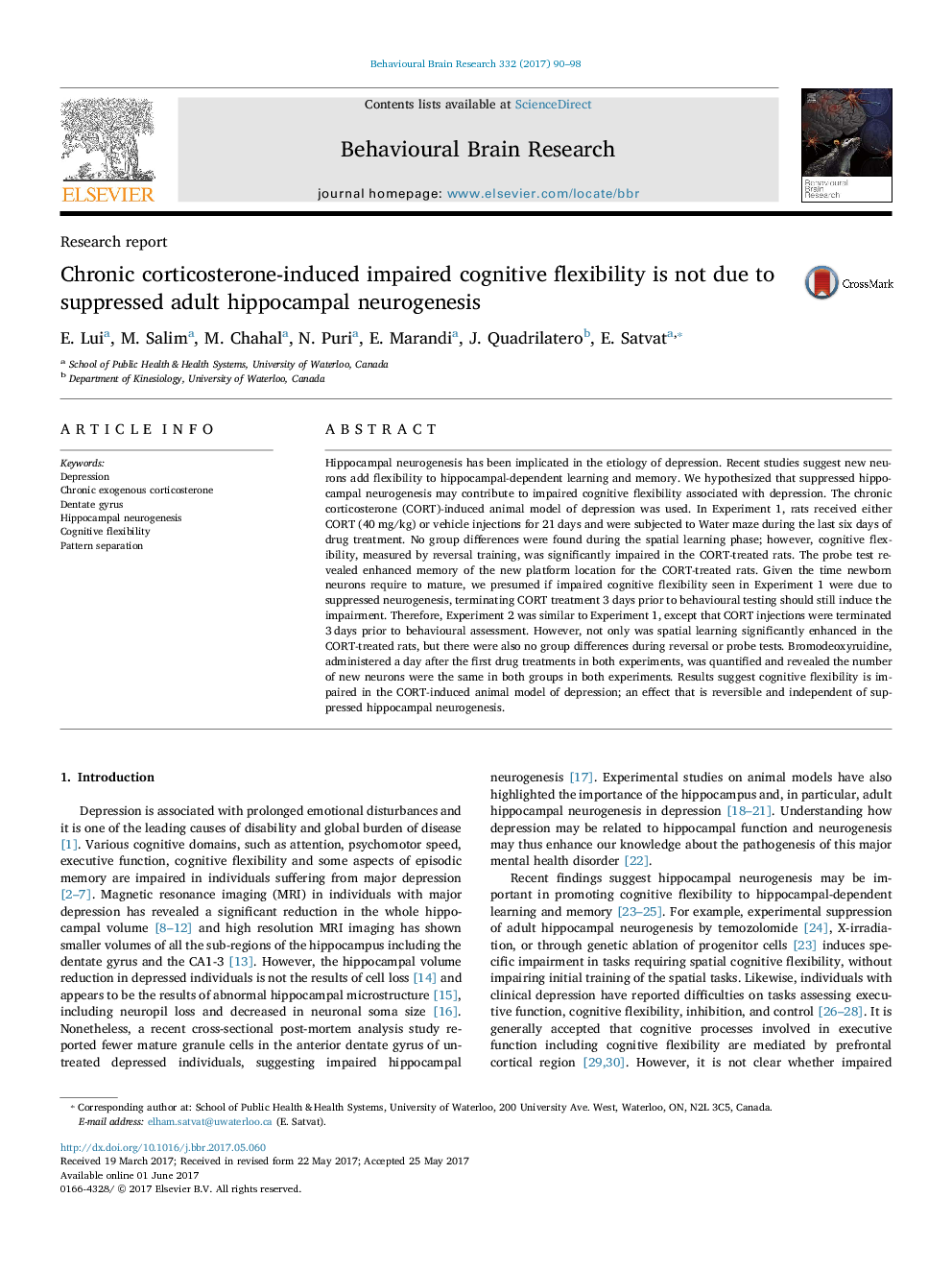ترجمه فارسی عنوان مقاله
مزایای انعطاف پذیری شناختی ناشی از کورتیکواسترون مزمن ناشی از نوروژنز هیپوکامپ است که سرکوب می شود
عنوان انگلیسی
Chronic corticosterone-induced impaired cognitive flexibility is not due to suppressed adult hippocampal neurogenesis
| کد مقاله | سال انتشار | تعداد صفحات مقاله انگلیسی |
|---|---|---|
| 128268 | 2017 | 9 صفحه PDF |
منبع

Publisher : Elsevier - Science Direct (الزویر - ساینس دایرکت)
Journal : Behavioural Brain Research, Volume 332, 14 August 2017, Pages 90-98
ترجمه کلمات کلیدی
افسردگی، کورتیکواسترون مزمن خارجی سلام، نوروژنز هیپوکامپ، انعطاف پذیری شناختی، جداسازی الگو،
کلمات کلیدی انگلیسی
Depression; Chronic exogenous corticosterone; Dentate gyrus; Hippocampal neurogenesis; Cognitive flexibility; Pattern separation;

